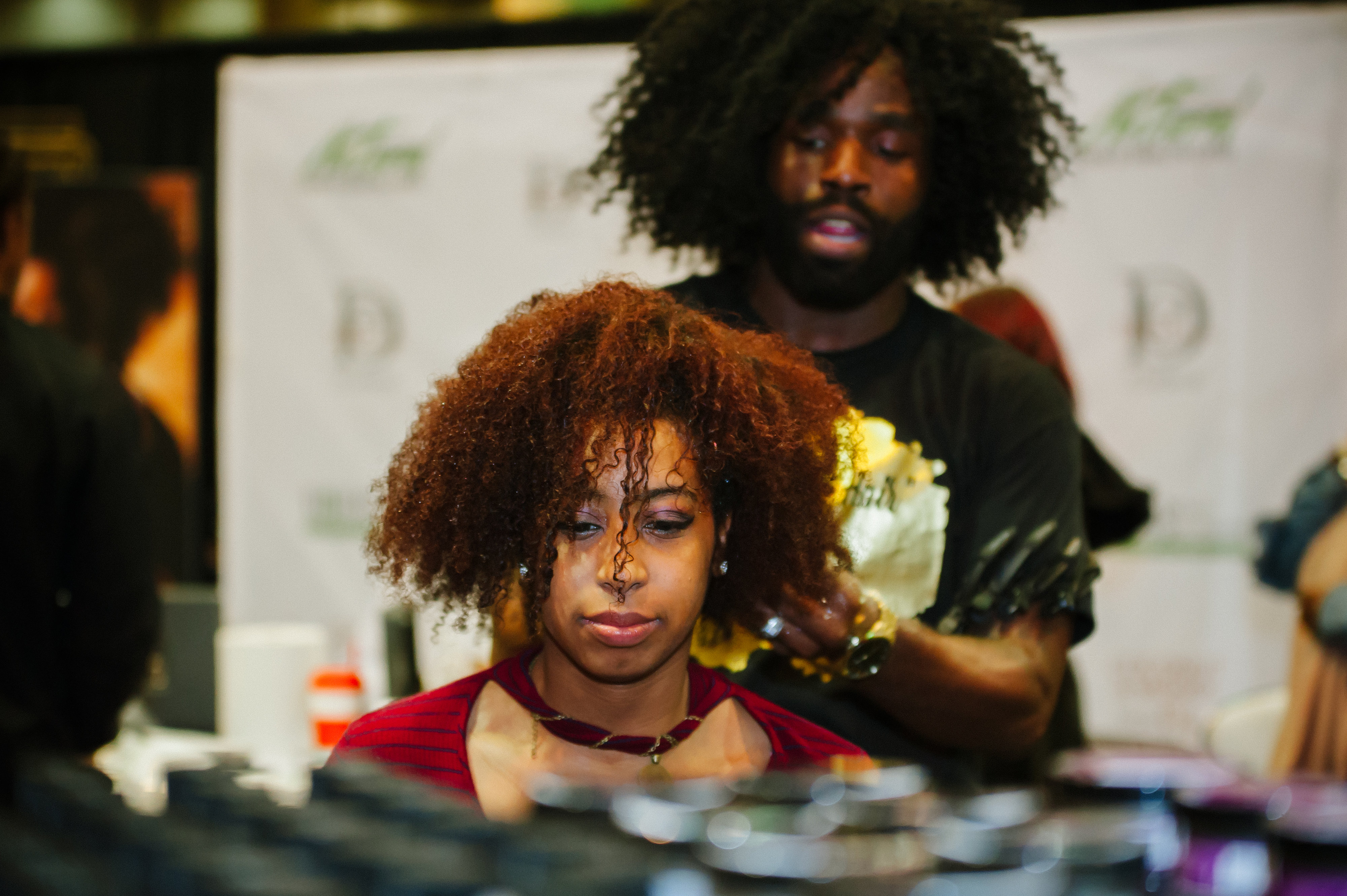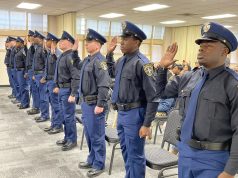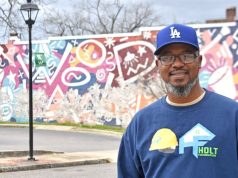By Ariel Worthy
The Birmingham Times
Photos by Handy Photo Media, Special to The Birmingham Times
Leah Gordone, owner of Atlanta-based Gordone Cosmetics, found an interesting way to moisturize and soften her hair: sweet potatoes.
“I was in my mom’s kitchen, and I was always using mayonnaise masques on my hair,” she said. “I googled the benefits of sweet potatoes and [found that] it helps your skin.”
Gordone said she discovered that sweet potatoes contain beta-carotene—an organic red-orange pigment that’s abundant in plants and fruits and is converted to vitamin A, which is needed for growth of all cells, including hair. Sweet potatoes also contain high levels of numerous vitamins. Anything that can help your skin, she said, can help your hair.
“When I felt it in my hair, I felt how soft and moisturized it was,” she said. “I started reading the benefits … [and found that] sweet potatoes help with hair growth … and stimulate the scalp very well.”
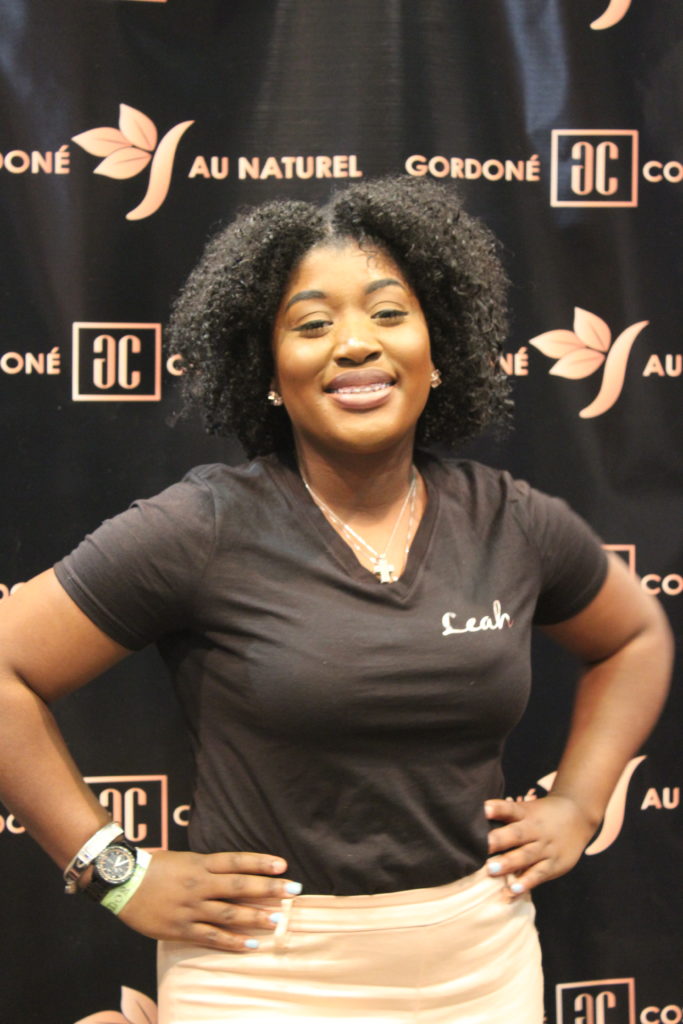
Gordone, 26, was one of more than 100 vendors in Birmingham this month for the seventh annual Natural Hair and Health Expo, which drew thousands to the Birmingham Jefferson Convention Complex (BJCC) and offered something for everyone in attendance—healthy hair talks and panel discussions; styling demonstrations; beauty pageants; hair product samples; fashion shows; styling competitions; even massages, manicures, and pedicures.
The event, which has grown exponentially since it began in 2011 at the Cahaba Grand Conference Center on U.S. Highway 280, has become one of the largest gatherings outside of football and concerts in the state of Alabama. It is known for offering tips on healthy hair and wholesome lifestyles to people from across the Southeast.
More Than Hair
Hair and health were not the Expo’s only focus. Sisterhood and empowerment were a big part of the event.
“We’re beautiful,” said Gordone, who has been wearing her natural hair for six years and operates her business online. “I feel like we don’t see ourselves on TV, we don’t see ourselves in magazines. Seeing us on screen, like in the [film] ‘Black Panther,’ is a movement. Us being here, being around other people who look like us, with our hair being kinky, not having to be straight and relaxed, I love that. To me, it’s powerful. I want it to be powerful to other girls coming up after me.”
Gordone said she was thrilled by the support.
“I’m from a small town, Fayetteville, N.C. I moved to Atlanta, and I see natural hair, but I don’t feel it. I haven’t felt it until today,” she said. “We are very powerful. Being a small business open for only a week, I’ve had so many sales and so many people support me. I could be in tears right now. It’s a wonderful feeling.”
Nadja Renise, who owns an Atlanta-based company named Femme Noire, which means black women, said, “It just fills your cup to see the sisterhood. [When someone says], ‘I like your hair,’ that builds you up, makes you feel good. [It’s nice to see people] … giving those compliments and seeing that we are here for each other. That is really important, seeing other women who are here for us, who stand for us; seeing women who support each other. It’s overwhelming. I think it’s an amazing event for multicultural women.”
Renise said she makes products specifically for black women because there are a lot of products made “to us, but not by us.”
“Because of that, [beauty product lines] jump on trends, not knowing what we need but giving us what we want,” she said. “I want to have a company that gives you both.”
Renise’s hair care line includes moisturizers, hair growth oil, leave-in conditioners, and cleansing and conditioning cleansers made with rhassoul clay and bentonite clay: “Bentonite clay alone strips your hair of moisture, so the rhassoul clay helps to condition and balance that out and make it soft.”
All of Renise’s products smell like chocolate.
“We want you to feel good about yourself and feel sensual when you use them,” she said.
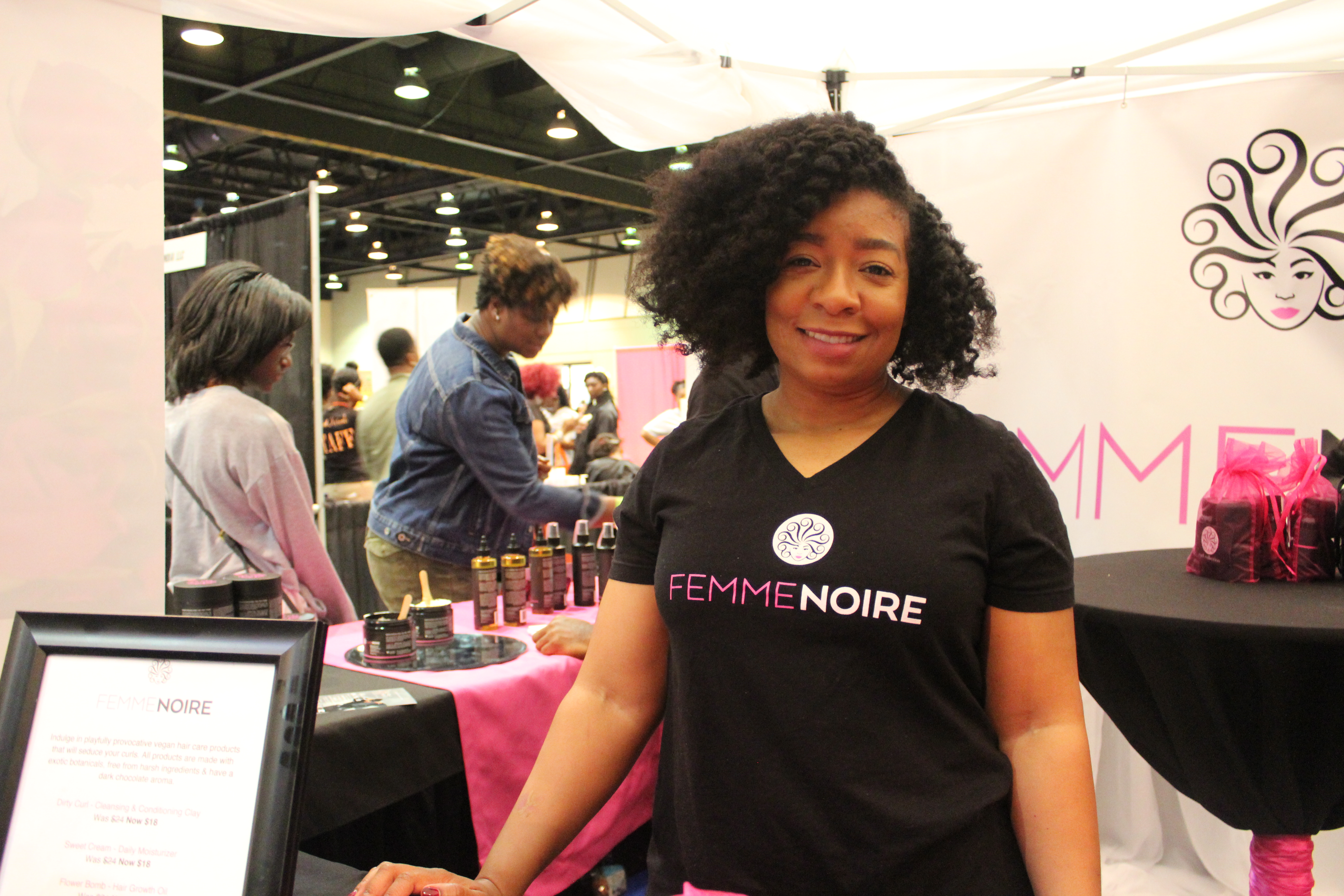
Vegan Hair Care
First-time Natural Hair and Health Expo attendee Jasmine Linson of Birmingham has worn her natural hair her entire life and has been around only a handful of women who have kept their hair chemical-free, as well. Not during the Expo, though: “To finally be around hundreds of women who are interested in the same things I’m interested in is amazing,” she said.
Linson said she is used to people asking her for hair tips, but at the Expo she was able to ask professionals about hair maintenance.
“One thing I learned from a vendor is that natural hair is like a plant,” Linson said. “You have to feed it, water it, care for it, and protect it. With that comes trial and error, but the more you invest in that plant, the easier it gets.”
The Expo served as an outlet for black women to truly be themselves, and “represent their culture, unbothered,” she said.
“There are so many stigmas around for women having afros, so many uncomfortable questions and irrelevant opinions, and very little media representation,” Linson said. “It’s almost like if you have natural hair, you’re setting yourself up as a target.
“For the first time in a long time, I don’t feel like a target; I don’t feel alone in a room full of people. I’m sure others feel the same. Black women need this Expo because we are never given the chance to love and embrace ourselves the way we originally are.”
Krystle Savage from Birmingham attended the Natural Hair and Health Expo with her cousin and best friends, all of whom are natural, too. She said she is going into her third year as a “naturalista,” a woman who celebrates her natural hair.
“I think an event of [this] kind is pertinent for sustaining the pulse of our 21st century natural hair movement,” she said. “Rejecting, devaluing, and outright hiding our God-given hair texture has unfortunately been the status quo of the African-American majority for quite some time.”
Hair, Race, and Gender
Even when assimilating by chemically straightening and relaxing their hair, black women still maintain low levels of power when it comes to the intersection of race and gender, Savage said.
“Ironically, however, I dare say our influence has been tremendous, transcending the barriers of Hollywood film, musical genres, political platforms, and cultural norms,” she said. “Still, for some reason, enjoying our attributes for ourselves has been a practice America has frowned upon.”
Events like the Expo equip black women with knowledge and skill, “while fostering sisterhood and support for remaining resilient in the face of microaggression, cultural misappropriation, and institutionalized racism,” she said.
Savage said she learned the significance of oil placement and treatments when it comes to moisturizing her hair.
“Quite frankly, we can’t be comfortable in our own skin if we haven’t been taught how to properly care for that skin,” she said. “If we aren’t comfortable, we aren’t confident.”


